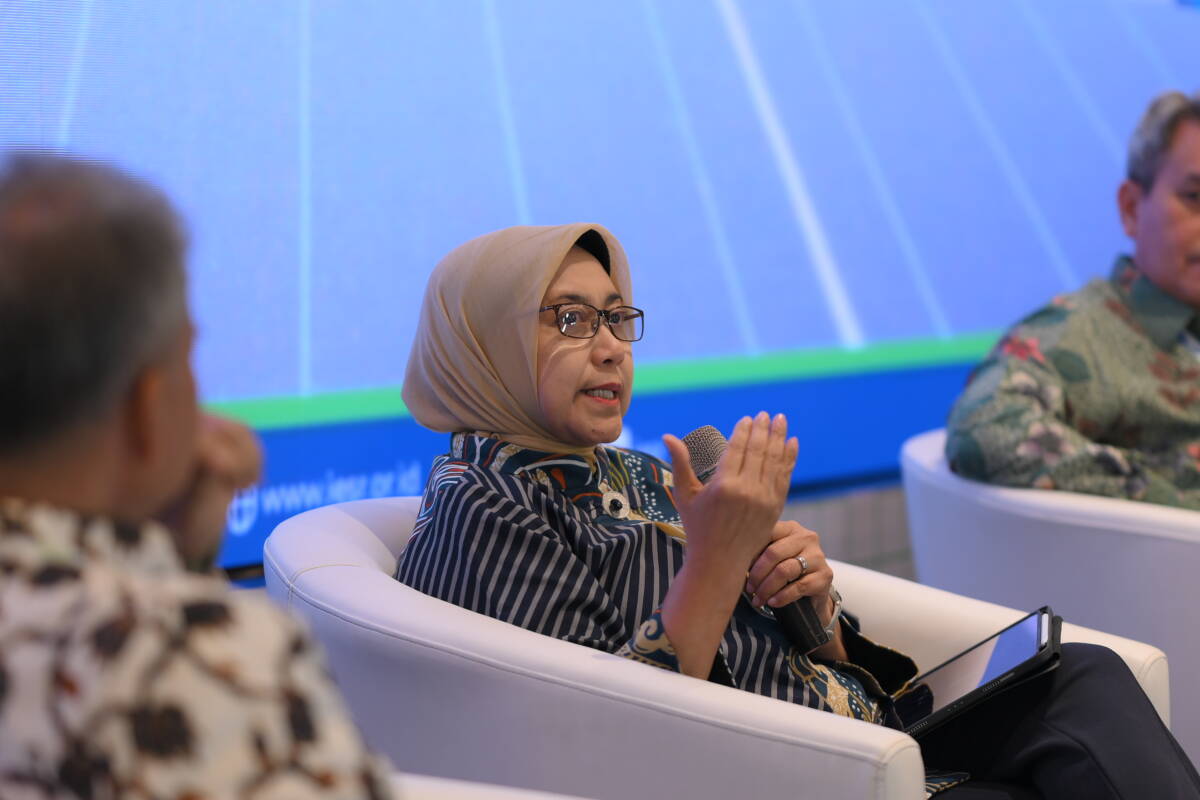Jakarta, 4 November 2024 – The Draft Government Regulation on the National Energy Policy (RPP KEN) has entered the harmonization phase at the Ministry of Law and Human Rights and is now awaiting the president’s approval. The KEN serves as a strategic document guiding efforts to achieve the Net Zero Emissions (NZE) target by 2060 or sooner.
The Institute for Essential Services Reform (IESR) emphasizes that setting an ambitious renewable energy mix target with a clear strategy should be included in the National Energy Policy (KEN) to strengthen Indonesia’s commitment to achieving Net Zero Emissions (NZE) and fostering economic growth of eight percent, as envisioned by the Prabowo-Gibran administration. However, the current KEN draft proposes a reduction in the renewable energy mix target from 23 percent in 2025 to 17–19 percent, aiming for 70–72 percent by 2060.
Deon Arinaldo, IESR’s Energy System Transformation Program Manager, stated that KEN should also establish a specific NZE target for the energy sector by 2060 or sooner. He noted, however, that the KEN’s proposed targets would still result in considerable emissions if 28–30 percent of the energy mix remains dependent on fossil fuels. The KEN strategy relies on carbon capture and storage (CCS) technology to address emissions in power generation, but the CCS capture rate has not yet been proven to achieve 100 percent mitigation and remains costly. Moreover, while increasing the biofuel mix is part of the strategy, it still involves significant fuel use in transportation, contributing to emissions, and its scalability largely depends on the palm oil industry.
“Global energy transition investments grew by 17 percent over the past year, reaching USD 1.8 trillion, but they will need to increase approximately threefold by 2030 to meet the commitments to double energy efficiency and triple renewable energy capacity by 2030, as agreed at COP28 last year. The largest investment flows have been directed toward renewable energy development, especially in solar and wind power, as well as electric vehicles, each attracting over USD 600 billion. Indonesia has both the potential and resources to develop these sectors and should view this as an opportunity to attract investment,” said Deon on a separate occasion at the Indonesia Energy Transition Dialogue (IETD) organized by the Institute for Essential Services Reform (IESR), the Indonesia Clean Energy Forum (ICEF), and the Ministry of Energy and Mineral Resources (MEMR) in Jakarta (4/11/2024).
At the same event, Vivi Yulaswati, Deputy for Maritime Affairs and Natural Resources at the National Development Planning Agency of the Republic of Indonesia (Bappenas), noted that achieving the NZE target is closely linked to Indonesia’s efforts to escape the middle-income trap.
“Indonesia has remained a middle-income country for about 30 years. To address this, we are advancing the vision of a Golden Indonesia 2045, aiming for Indonesia to join the ranks of developed nations by its 100th year of independence. Achieving this will require high, yet cleaner, economic growth. Our energy policy framework must also shift towards renewable energy,” explained Vivi.
Yunus Saefulhak, Head of the Bureau of Energy Policy Facilitation and Hearings at the National Energy Council (DEN), noted at IETD 2024 that the KEN update has considered factors such as Nationally Determined Contribution (NDC) targets, global climate commitments, and economic growth projections from Bappenas.
“We need robust energy demand to drive economic growth while ensuring energy security. Therefore, we are gradually phasing down coal-fired power plants and aiming to reach peak emissions by 2035 to achieve NZE by 2060. In the current KEN draft regulation, emissions in the energy sector are projected to drop to 129 million tons of carbon dioxide equivalent by 2060,” Yunus explained.
The Indonesia Energy Transition Dialogue (IETD) 2024 marked the seventh IETD since its inception in 2018. Held from November 4-6, 2024, this year’s IETD adopted the theme “Realizing an Equitable and Orderly Energy Transition.” The event featured 11 sessions covering a wide range of topics and formats, with contributions from 50 national and international speakers, panelists, and moderators.
The outcomes of IETD 2024 will be summarized and put forward as recommendations for the Prabowo-Gibran administration to support an equitable energy transition and achieve energy independence over the next five years.

